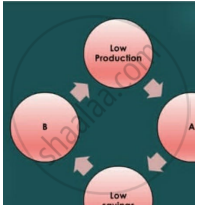Advertisements
Advertisements
Question
What do you understand by the drain of Indian wealth during the colonial period?
Solution
Dadabhai Naroji advocated the theory of ‘Drain of Wealth’ in the 19th century. The colonial period was marked by the exploitation of Indian resources. The sole motive of Britain to conquer India was to own a perennial source of cheap raw materials to feed its own industrial base in Britain. Further, British government used India’s manpower to spread its colonial base outside India. Also, the administrative expenses that were incurred by the British government to manage the colonial rule in India were borne by Indian Exchequer. Thus, the British rule drained out Indian wealth for the fulfillment of its own interests.
APPEARS IN
RELATED QUESTIONS
What was the focus of the economic policies pursued by the colonial government in India? What were the impacts of these policies?
What objectives did the British intend to achieve through their policies of infrastructure development in India?
Critically appraise some of the shortfalls of the industrial policy pursued by the British colonial administration.
Underscore some of the India’s most crucial economic challenges at the time of independence.
Were there any positive contributions made by the British in India? Discuss.
During colonial period India’s demographic profile showed ______.
Who made significant estimates about calculating national income in India during the British period?
Which industry suffered a major setback during the British rule?
‘Since independence, India has witnessed a considerable fall in the Infant Mortality Rate in India’ Identify which of the following may not be one of the reasons for the fall in the Infant Mortality Rate?
Choose the correct alternatives to be filled in given blanks A and B.

What were the impacts of the economic policies pursued by the colonial government in india?
Which of the following economists estimated India's per capita income during the colonial period.
